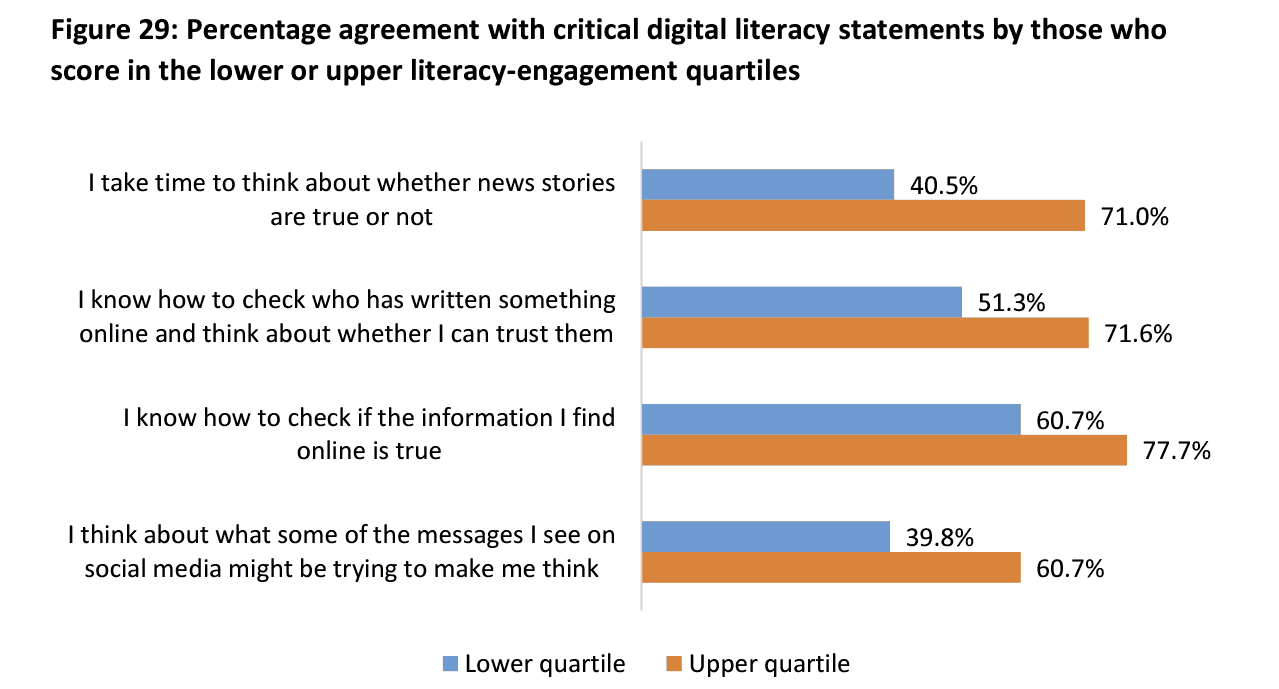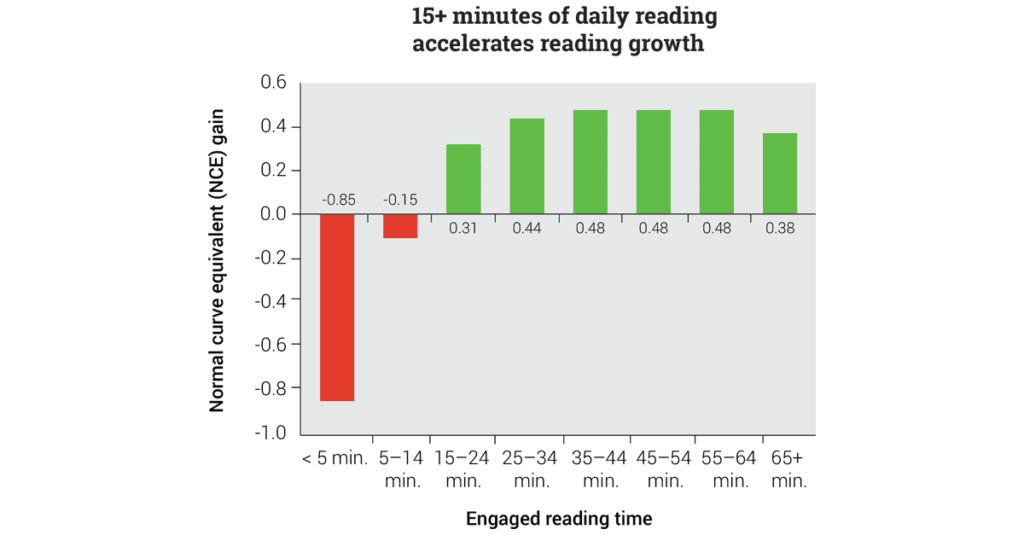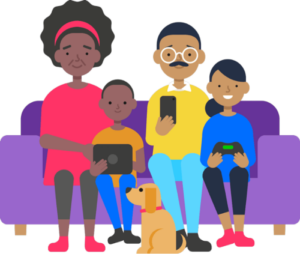Many parents, carers and teachers struggle to improve literacy levels in their children. However, there are steps you can take to make them more critical thinkers with improved media literacy as well.
Summary
- Many children’s screen time has increased while reading for enjoyment has decreased.
- Research shows that children with high literacy engagement are more critical of information online.
- However, you can use technology to improve literacy.
- Find more resources to support your child’s learning online.
The impact of technology
Improving literacy in the age of technology is a difficult task for anyone. In one 2022 report, The National Literacy Trust found that only 47.8% of children aged 8-18 claimed to enjoy reading. Unlike smartphones and gaming consoles, an e-reader or paper book does not always give instant gratification. As such, media literacy is also impacted.
In fact, a 2022 report from Ofcom found that multi-screening is now popular among young people. This refers to the use of multiple screens at one time – for example, browsing your phone while you watch a movie or playing YouTube while you game. Only 4% of children aged 3-17 said they never do anything else while watching TV. 15% of children claimed to watch TV while doing their homework. As such, it makes sense that reading, which generally needs full attention, isn’t the preferred activity among many children.
Reading for pleasure (i.e. children choosing books to read instead of reading for school) is important for improving literacy in young people. It has many benefits, including general reading and writing ability as well as a larger vocabulary, better decision-making insights and better comprehension of what they read in other spaces like social media.
Effects on media literacy
In research from The National Literacy Trust, children aged 11-16 who had high literacy engagement were more likely to approach online information critically than those with low literacy engagement. They are therefore more likely to have good media literacy as well.

As a result, children who have lower interest in reading may not have the same ability to identify misinformation online. Those with high engagement are also more likely to experience better wellbeing and greater empathy about what they post online.
Ways to improve your child’s literacy
Because of the role technology plays in our daily lives, it can be difficult to get a child to read outside of school. In fact, getting them to read in school is sometimes a challenge too! However, it’s important to find a way for them to read what they will enjoy. Here are a few suggestions:
Read together
Regardless of their age, reading together is a good way to improve literacy and get your child to read. If they are a reluctant reader, you might need to read for them at first. Eventually, you can take turns reading pages. Start off small and, as their stamina increases, spend more time. According to Renaissance Learning, children need at least 15 minutes of reading per day to start improving. Reading together and discussing what you read will also help improve their overall literacy, including media literacy.

Use reading programmes
Your child’s school may have reading programmes in place like Accelerated Reader. Some children thrive under these programmes while others don’t see the draw. However, check in with your child to see what programmes their school uses and what they enjoy about it. For example, they might like the achievement of getting 100% on the comprehension quizzes or the prizes and recognition they get from their teacher. You can then use these incentives at home to encourage more reading.
Find what works for them
Some children can’t stand a big novel but could read it in a graphic novel format. Others might prefer reading online to off or prefer audio books. Some children might only want to read books about dinosaurs. If you play into their interests, they are more likely to find enjoyment in reading. Therefore, they are more likely to read for pleasure.
For some online reading opportunities, check out this list from the BookTrust charity.
Use video games that feature reading
Many roleplaying games feature a lot of text that moves the story forward. Other games may be specifically designed to encourage reading. If your child is a gamer, this is a great route to follow. With a fun game, they may not really recognise they’re being asked to read. Additionally, some games may lead to reading in different ways. The National Literacy Trust found that 79% of young people who play video games read materials relating to video games. This includes information in the game itself, reviews and blogs related to the game, books related to the game and fan fiction.
Family gaming expert Andy Robertson worked with The National Literacy Trust to compile a list of video games that encourage literacy. You can see that list here. You can also explore different skill-building apps in reading and storytelling to encourage literacy in different ways.
Supporting resources







